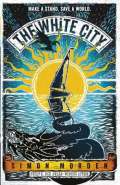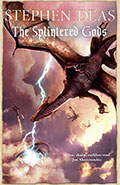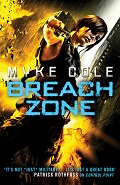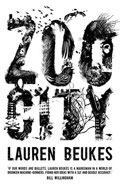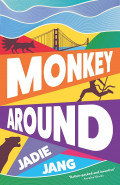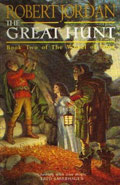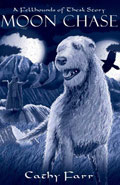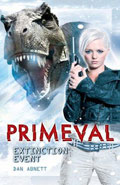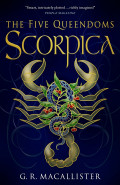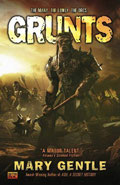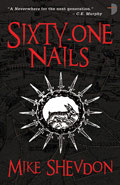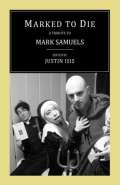Harrison Squared
By Daryl Gregory
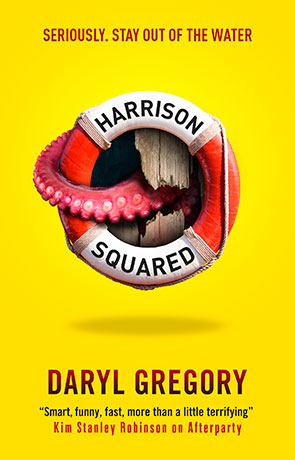
- Harrison Squared
-
Author: Daryl Gregory
-
Publisher: Titan Books
- ISBN: 978-1783297641
- Published: March 2015
- Pages: 352
- Format reviewed: Paperback
- Review date: 20/03/2015
- Language: English
- Age Range: 15-
In Harrison's earliest memory he is three year's old. He is with his father on a boat that breaks apart in a storm off the California coast. He knows a chunk of metal sheared off his leg at the knee as his father sank into the water. So why does he remember tentacles and teeth?
Daryl Gregory’s new novel Harrison Squared begins thirteen years after that memory, when Harrison accompanies his marine biologist mother to Dunsmouth, Massachusetts to study the migration of giant squids. He soon learns two disturbing things. The boating accident that took his leg and his father happened here, not in California. And his mother is less interested in squids in general so much as she is in one particular undersea (and, as it turnout, interdimensional) tentacled cephalopod, one with a special connection to Dunnsmouth. That special connection cuts both ways, in that some of Dunnsmouth’s residents know about and worship the creature. Understanding all of this becomes a major preoccupation for Harrison, who finds the stakes getting higher and higher as people begin disappearing.
Harrison Squared is Gregory’s sixth novel. It’s a prequel to last year’s We Are All Completely Fine but easily stands alone. Elements of these books Gregory will be familiar to readers of H.P. Lovecraft’s Cthulhu mythos. For instance, we see cultists who worship alien beings who are indifferent or hostile to humanity and amphibian humanoids in a dilapitated rural coastal town. The book doesn’t require any Lovecraft to appreciate, however. It presents a self-contained world. (After you read the book though, if you’ve not read Lovecraft, you should go read Gregory’s We Are All Completely Fine. Then go read Lovecraft’s “Dagon” and “The Shadow Over Innsmouth,” both of which are online and in the public domain.)
Whether or not you’ve read Lovecraft, I want to point out two important ways that Gregory's work differs from Lovecraft’s. Lovecraft represented the universe as fundamentally opposed to humans, and full of powerful creatures who move through space and time incomprehensible ways, creatures capable of wiping out large numbers of humans with no more thought than a human stepping on an ant colony. Gregory’s work is not so epic, in a good way. Lovecraft’s books were ultimately cold, in that they were about people grappling with a sense that they didn’t matter, and left readers wondering if anything mattered. Gregory's writing is fundamentally warm and humane, in that his writing reflects a sense that people genuinely matter.
Lovecraft also trafficked in basically racist ideas. I still enjoy his fiction, but they contain themes that writers today should update rather than repeat. Gregory's allusions are exemplary of what I mean. In Lovecraft’s work, creatures’ biology dictated their views and actions, and some of these ‘creatures’ included ‘degenerate’ humans like pacific islanders and rural poor New Englanders. They're bad guys because of their nature and culture. In Harrison Squared, and Gregory’s other writing, however, the bad guys aren’t natural. They're social. That is, they’re people, with ideas, and they disagree with each other. And there are people who look physically like some of the bad guys aren’t themselves bad guys. Some of the rural poor people and amphibian humanoids here do want to wipe out humanity, but others don’t. (Gregory similarly reworked the idea of zombies in his Raising Stony Mayhall. Typically zombies, like Lovecraft’s evil amphibians, are represented as monsters who can not be reasoned with, who are bent on destroying our way of life, and who are identifiable by their physical characteristics.) In Gregory’s hands, these creatures become individuals with thoughts and feelings and relationships and moral quandaries. Some of them want to kill humanity. Others oppose that. These positions are political, not biological.
If that all sounds slow or heavy-handed, take it as a reflection on the limits of my writing, and not Gregory’s. Gregory doesn’t stop and turn to the reader and say “okay gang, it's the 21st century, let’s not define an entire group as enemies based on their bodies.” Instead he gripping fast-paced stories where what makes someone a monster is their moral choices rather than their body type. Oh, and those monsters? They're creeeeeeeepy. Especially one called The Scrimshander.
A scrimshander is a person who carves pictures on whalebone. The Scrimshander is a several hundred year old killer in a wide-brimmed hat, a monster who carves pictures on human bones. In some cases these are the bones of people who aren’t dead yet. That’s in We Are All Completely Fine. What the Scrimshander does in that story is, well, kinda gross. What the Scrimshander does in Harrison Squared is at least as evil, but less graphic. I don’t want to spoil anything here for you as a reader - you really should read this book - so I'm going to be somewhat vague. I found the Scrimshander’s crimes handled with taste and restraint in Harrison Squared - I mean, he does ugly things to people but speaking as a parent myself, I'd say this book is at most PG-13 - and yet, the more I thought about The Scrimshander the more I found his actions unnerving. In general this was a book that stuck with me when I put it down, especially at night when I was walking through my house. It made me check that the doors were locked, and stop sitting with my back to windows while I read. That's a mark of success in a scary books. As with Gregory’s Afterparty, Harrison Squared unfolds as a mystery story. The pursuit of that larger mystery creates new mysteries, as taken-for-granted facts get called into question, like when Harrison learns that he lost his leg and father in Dunnsmouth, not San Diego. Those smaller mysteries create larger ones with more serious stakes - why did his mother conceal this from Harrison? What is she really looking for in Dunnsmouth? Puzzles compound, enigmas accumulate, mysteries darken, and they have to be solved before someone gets eaten.
This review’s gone on long enough already but I want to quickly mention three things before I end. One, the high school Harrison attends in Dunnsmouth is eerie because it's full of dark magic and ancient evil. It's also a place where we can see some young people’s experiences of school (in the way that caricatures point out real facial features). School can be dull, teachers pushy, other kids judgmental and cold. I’m old and my kids are young so I can’t say for sure but I think this depiction would appeal to any teen who has ever found school a drag. More generally, this is part of what I like about Gregory's fiction - there's a recognizable human social world mixed in with the impossible/futuristic fantasy/sci-fi elements.
Two, Harrison’s an amputee, having had his foot bitten off by a monster. I enjoyed reading a book with a protagonist who has a disability. That seems rare to me. And I liked that Gregory doesn’t make a huge deal out of it. I could imagine a worse writer taking a pitying and heavy-handed tone of “aww look at the poor disabled kid, isn’t it terrible to be disabled? Look how great he has done at overcoming that condition.” Instead, Harrison’s a basically regular kid. Except his dad died, and he's embroiled in the mysterious plans of cultists and alien monsters. That he happens to have a prosthetic foot isn't a particular big deal here. It complicates his life to some extent, but it doesn’t define his character or the book's plot. (This is not to say it's a bad thing if an author writes about disability. It's to say that people with disabilities should not appear *only* in books about disability and people with disabilities should be defined exclusively as The Disabled Character.) Three, and lastly, Gregory’s characters banter in a way that I’ve seen in few other novels. The most similar work I can think of on this is Roddy Doyle, an otherwise very different sort of writer. Characters here joke with each other to relieve stress, to express feelings they can’t quite say directly, and just for the fun of wordplay. That seems very true to life to me, and so makes the characters more real. That's especially helpful when those characters aren’t human. The banter is one of the things that makes this book sometimes very funny. Sometimes the funny moments serve as comic relief, easing the tension built up by the book’s fast and suspenseful pacing. At other times they ratchet up the tension, when laughing makes you put your guard down, so you can be sucker-punched. Or tentacled.
To sum up: Read it, it’s great. Just maybe don't read it on a boat.
Written on 20th March 2015 by Nate Hawthorne.
